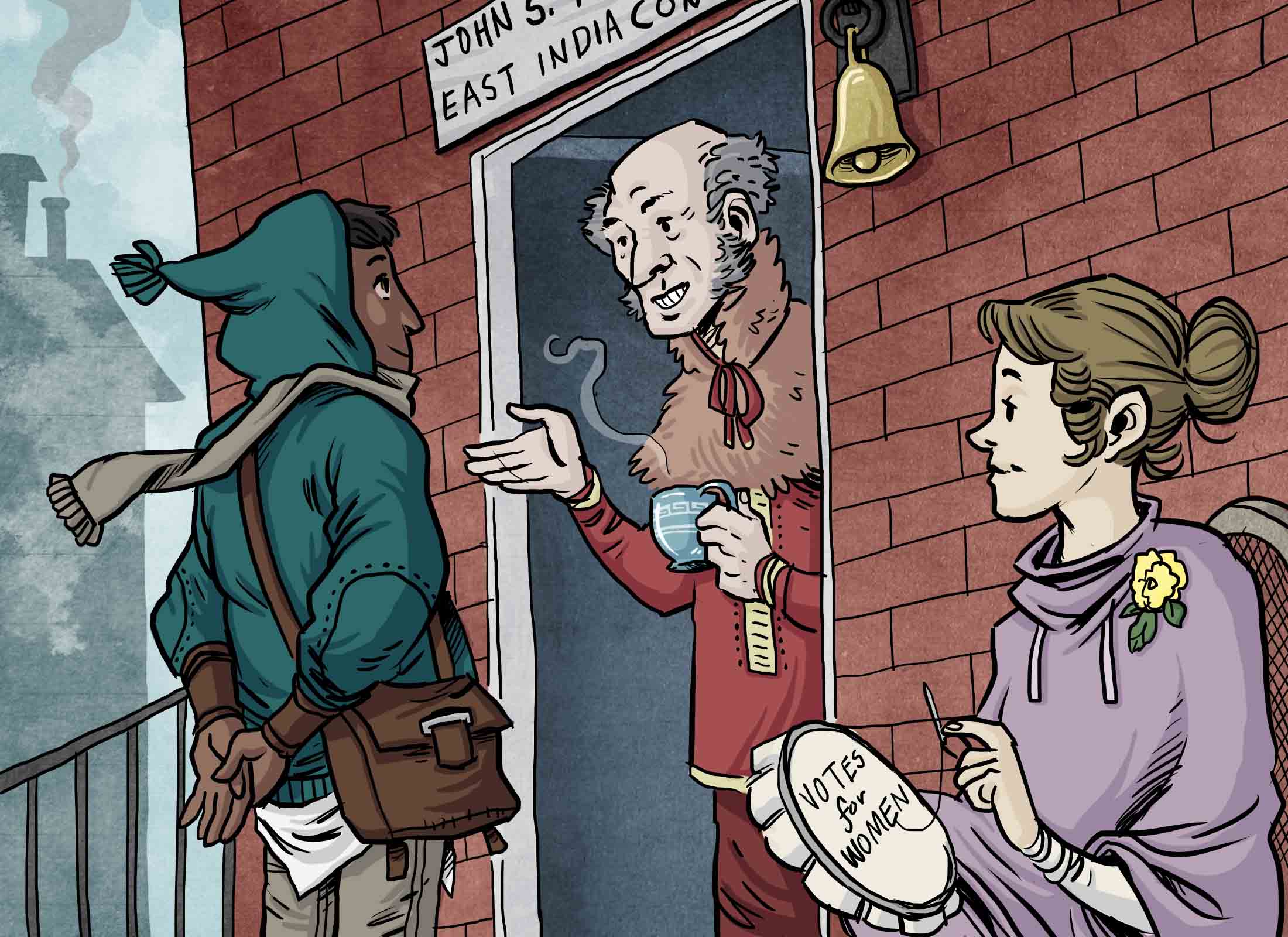

You thank Bentham and continue down the path considering this theory that definitely has some flaws but at the same time could have some usefulness. Soon, you come across a brick house with a sign that says: “John S. Mill – Clerk, East India Company, University Rector, and Member of Parliament.” You knock on the door and enter. “Are you the man named John who is Mr. Bentham’s top disciple?”
“Yes, I am,” the balding man replies.
“Great,” you say. “I just met with Mr. Bentham, and he suggested that I meet with you to learn about your version of Utilitarianism.”
“Wonderful. Jeremy and I have much in common, but in some ways we differ. For instance, I do believe that morality is tied to usefulness and that we must concentrate on the product or endstate of our actions. However, I believe that quality of pleasure is important to consider. For instance, intellectual pleasure is superior to physical pleasure. I always say, ‘better to be a human dissatisfied than a pig satisfied; better to be Socrates dissatisfied than a fool satisfied.’3 Further, we must consider values in life such as personal liberty. My wife, Harriet Taylor, and I are champions for women’s rights. After all, women are part of the community and their happiness must be considered. It truly gives me great pleasure to help others. After all, we humans are social creatures, and we desire unity and harmony with each other. In some ways, I think Bentham is a little too preoccupied with self-interest.”
You like the idea of community and equal rights for women, and John has such a sense of optimism, that you are willing to hear more.
“Humans have the capacity to improve life for everyone if we can channel our wisdom and science for the good of humanity,” Mill continues. “All the grand sources of human suffering are in a great degree, many of them almost entirely conquerable by human care and effort.”4
Yes, you think to yourself. Through my effort I can conquer this challenge. “Thank you for sharing your wisdom,” you say to Mill. “I am ready to be tested on the theory of Utilitarianism and then continue on my journey.”
“Very well,” Mill replies. “Let’s begin.”
[3] John Stuart Mill, Utilitarianism.
[4] John Stuart Mill, Utilitarianism.